Earth
Sign up for our newsletter
We summarize the week's scientific breakthroughs every Thursday.
-
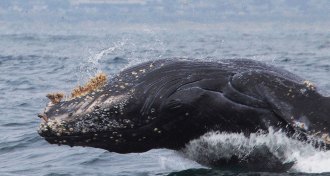 Animals
AnimalsBarnacles track whale migration
The mix of oxygen isotopes in the shells of barnacles that latch on to baleen whales may divulge how whale migration routes have changed over millions of years.
-
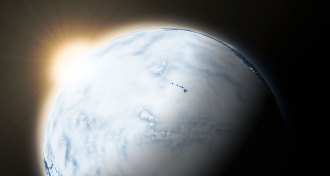 Climate
ClimateMethane didn’t warm ancient Earth, new simulations suggest
Scarce oxygen and abundant sulfate prevented methane from accumulating enough to keep Earth warm hundreds of millions of years ago, reviving the faint young sun paradox.
-
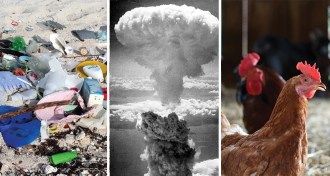 Earth
EarthNuclear blasts, other human activity signal new epoch, group argues
A group of scientists will formally propose the human-defined Anthropocene as a new epoch in Earth’s geologic history within a few years, probably pegging the start date to nuclear tests.
-
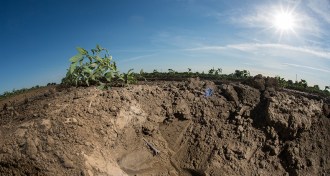 Earth
EarthNatural ally against global warming not as strong as thought
Soils may take in far less carbon by the end of the century than previously predicted, exacerbating climate change.
-
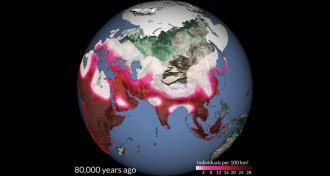 Genetics
GeneticsSingle exodus from Africa gave rise to today’s non-Africans
Genetics and climate studies differ on when modern humans left Africa.
-
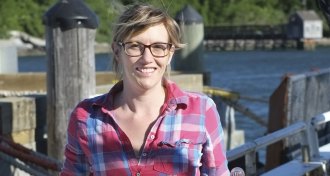 Oceans
OceansMelissa Omand’s clever tech follows the fate of ocean carbon
Drawn to the water early, oceanographer Melissa Omand now leads research cruises studying how carbon and nutrients move through the seas.
-
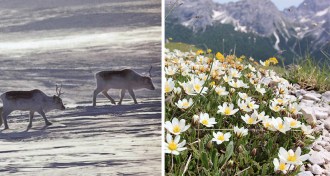 Ecosystems
EcosystemsShrinking sea ice threatens natural highways for caribou, plants
As Arctic sea ice declines, Peary caribou or plants risk getting stranded when their frozen highways thaw.
By Susan Milius -
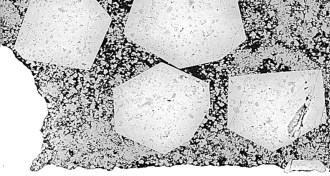 Earth
EarthPrimordial continental crust re‑created in lab
Compressing rocks from an ocean plateau at high temperatures and pressures re-creates the formation of Earth’s first continental crust.
-
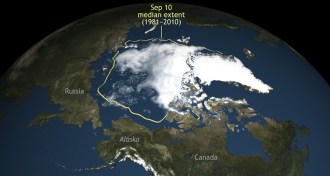 Climate
ClimateArctic sea ice shrinks to second-lowest low on record
A warm summer helped shrink sea ice in the Arctic Ocean to a statistical tie with 2007 for the second smallest sea ice minimum on record.
-
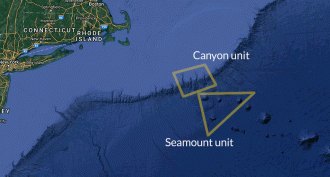 Oceans
OceansFirst U.S. ocean monument named in the Atlantic
A region of ocean off the coast of Cape Cod has become the first U.S. marine national monument in the Atlantic Ocean, President Barack Obama announced.
-
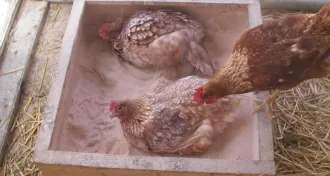 Animals
AnimalsSandboxes keep chicken parasites at bay
Fluffing feathers in sand and dust prevents severe mite infections in cage-free hens.
-
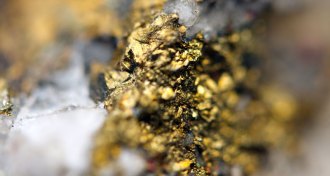 Earth
EarthWhere the young hot Earth cached its gold
A simulation of the infant Earth provides a new view of how the iron-loving precious metals ended up buried deep in the planet’s core.